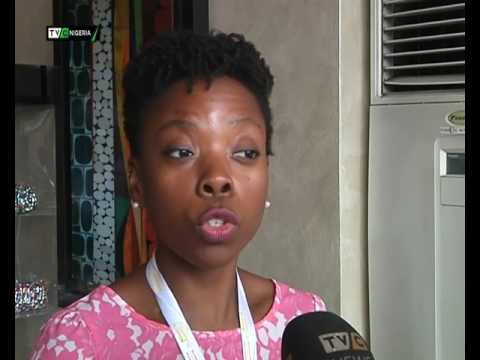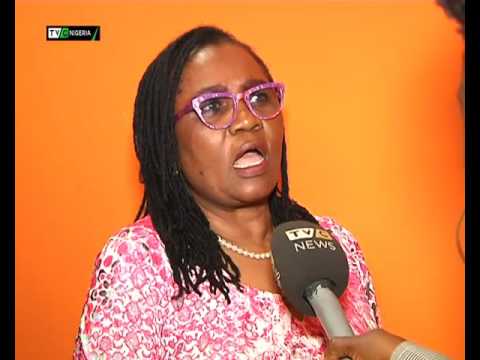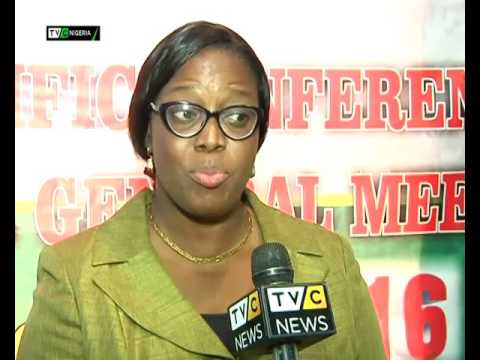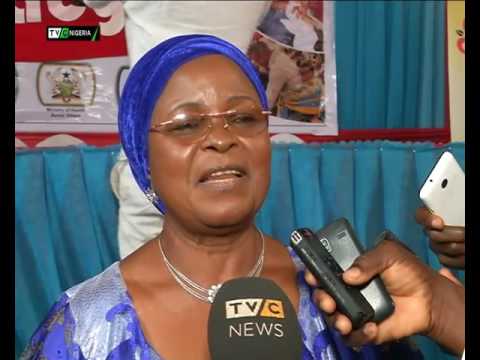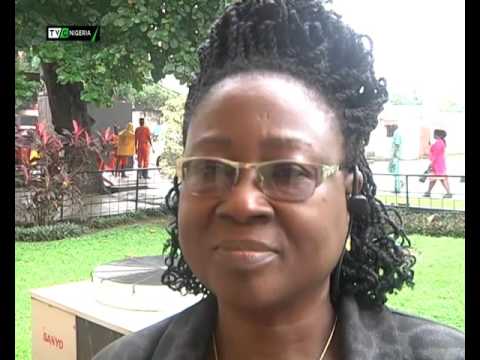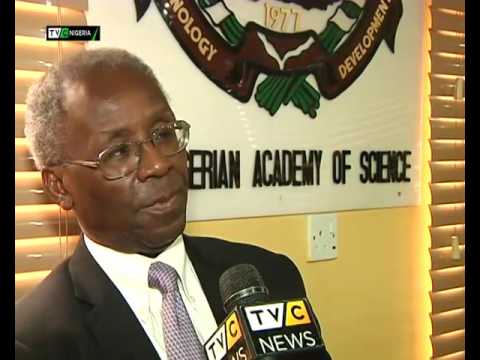Water monitoring: AMCOW advocates harmonised reporting
In recognition of the critical role of monitoring and reporting in evidence-based decision-making in the water and sanitation sector at national, basin and regional levels, the African Ministers Council on Water (AMCOW) has called on African member-states to adopt and strengthen the web-based Pan-Africa water sector monitoring and reporting system recently launched in Stockholm, Sweden during the World Water Week.
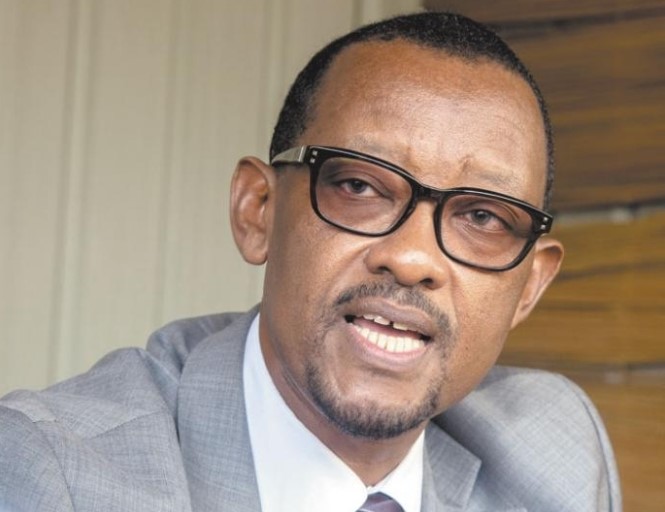
Dr. Canisius Kanangire, the AMCOW Executive Secretary, made the call on Monday at the African Union Commission headquarters in Addis Ababa, Ethiopia, venue of the training workshop on water and sanitation sector monitoring for member-states and stakeholders.
According to Dr. Kanangire, the web-based Pan Africa Monitoring and Reporting System “represents AMCOW’s innovative response to addressing the data challenge in Africa where Member-states use different data management methodologies and standards which do not permit effective comparison of countries’ efforts in achieving regional commitments.”
The newly launched M&E framework aspires to assist Member-states, working in collaboration with the AMCOW Secretariat and the AUC, in adopting and perfecting a common reporting format that will facilitate annual reports to the AU on the basis of data and information collected at national and sub-regional levels.
“This will, in the long run, result in a continent-wide credible monitoring and reporting system that will regularly provide critical and strategic information on the status of water development and its use (usage) for various purposes to facilitate informed decision making by African Governments,” says the AMCOW Executive Secretary.
Commending the workshop initiative as being of timely essence, the African Union Commissioner for Rural Economy and Agriculture, Rhoda Peace Tumusiime, in her welcome remarks, expressed optimism that the web-based monitoring and reporting system would “significantly reduce the reporting requirements on our already overburdened statistical departments across Africa.”
The AUC Commissioner restated the need for Africa to stay on course towards realising the target of the Africa Water Vision 2025 which envisages “an Africa where there is an equitable and sustainable use and management of water resources for poverty alleviation, socio-economic development, regional cooperation, and the environment.”
“Translating that vision of the Africa we want into reality makes it incumbent upon us to consolidate the gains of our achievements to-date by utilising the opportunity presented by this web-based Monitoring and Reporting System to revitalise our on-going efforts at developing, managing and utilising our water resources in a way that unleashes Africa’s development potential,” Tumusiime added.
An appreciable number of the workshop participants from South Sudan, Egypt, Kenya, Nigeria and Ghana described the training as very crucial and timely as it kick-starts the process of developing the 2016 Africa Water and Sanitation Report for submission to the AU Assembly of Heads of State and Governments in Africa.
Organised by the African Ministers’ Council on Water (AMCOW) in collaboration with the African Union Commission, the series of workshops which began on Monday comprises Monitoring and Evaluation Focal Persons from Water Resources Ministries in Anglophone countries in East, North and West Africa will end on Tuesday while that of English speaking countries in Southern Africa will follow immediately at the same venue.
Francophone countries from Central, East, North and West Africa will converge on Abidjan from the 26th to the 27th of September 2016 for the French version of the training.
60 Niger Delta students get Shell scholarships
A new batch of 60 children from the Niger Delta region in Nigeria has been awarded the special secondary school scholarship of the Shell Petroleum Development Company (SPDC) Joint Venture. Tagged “Cradle to Career”, the scholarships cover tuition and all other bills for six years in four of the topmost private secondary schools in Port Harcourt, River State.

Brookstone Secondary School, Jephthah Comprehensive College, Archdeacon Brown Educational Centre (ABEC) and Bloombreed High School in Port Harcourt receive 60 beneficiaries each year from difficult-to-reach parts of the Niger Delta on full scholarship for their secondary education, after a two-week orientation programme with introductory courses in academics, character and psychology.
The 60 students are the seventh set of beneficiaries and they bring the total number of beneficiaries since inception of the Cradle to Career programme to 410.
Managing Director of SPDC and Chairman, Shell Companies in Nigeria, Osagie Okunbor, said, “This year, the first set of beneficiaries completed their secondary education and the report we have is that about all of them recorded excellent performance in the school certificate and unified tertiary matriculation examinations. It means the aims of the programme are being achieved.”
Represented by the General Manager External Relations at the award ceremony in Port Harcourt on Friday, the MD said SPDC and its joint venture partners have sustained the scholarship initiative despite the current economic challenges because they see education as a right for every child and not a privilege.
Dr Patricia Ogbonnaya, Mrs Elizabeth Alagoa and Dr Moses Onoriode Bragiwa, representatives of the Rivers, Bayelsa and Delta states Commissioners for Education respectively, extolled the Cradle to Career scholarship scheme for complementing their governments’ investments in education. They praised the transparent selection process and the human capital development benefits of the programme to the region.
“SPDC has a passion for investing in people and we are happy to report that students in the programme have over the years been on the top of their classes in their respective schools. We thank Shell and their joint venture partners for helping to ameliorate the problems of the Niger Delta,” said Dame Christie Toby, the proprietress of one of the implementing schools.
The SPDC JV launched the Cradle to Career initiative in 2010 to provide for bright indigent students and improve on the positive results of its other portfolio of scholarship schemes for local and international undergraduate and postgraduate studies.
Shell Companies in Nigeria have a history of supporting education through scholarships and other initiatives. In 2015, a total of $10.1 million was invested in scholarships by the SPDC Joint Venture and Shell Nigeria Exploration and Production Company (SNEPCo.) Grants were awarded to 930 secondary school students and 638 university undergraduates in 2015, with a total of 10,401 (secondary) and 3,532 (university) grants given over the last five years.
How Revenue Service promotes sanitation in Kwara
“Environment is human’s first right. Without a safe environment, no one can exist to claim other rights be they social, economic and political.” – Ken Saro Wiwa, late Nigerian human rights activist and environmentalist.
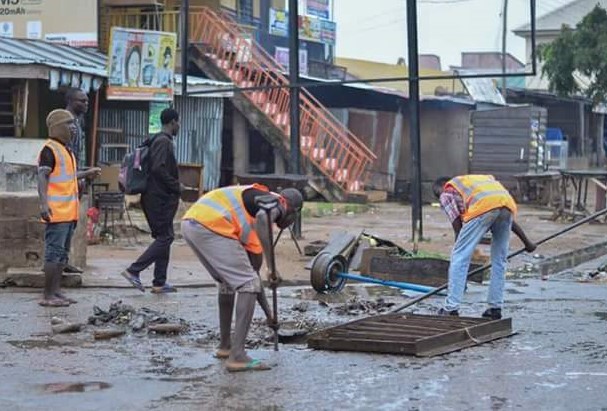
These words of Saro Wiwa point to the fact that the environment sustains humans; it is where we live and we must preserve it. Several studies have revealed that the way people treat their environment greatly influences the quality of their wellbeing. It is important they adopt practices and hygienic conditions that will promote good environmental sanitation and cleanliness which will eventually guarantee them good health.
It is in the light of the above that the Kwara State Internal Revenue Service (KWIRS), recently, as part of its community impact programmes, embarked on an environmental sanitation exercise to clear drainages and repair damaged portions of various roads within the Ilorin Metropolis.
The KWIRS team led by its Executive Chairman, Dr. Muritala Awodun, moved around the streets of Ilorin to sensitise residents on the need to keep their environment clean. Dr. Awodun explained that the sensitisation campaign was informed by the need to make Kwara tidy, adding that the clearing of drainages is to allow for free flow of water as they have been blocked by filths.
He stated that the fixing of potholes, which has begun on the Tanke-University of Ilorin Road, would be extended to other parts of the metropolis such as Asa Dam, Muritala Road, Adewole, Sango and many other areas.
The KWIRS boss advised people of the state to stop throwing refuse into drainages in order to prevent flooding during the rainy season, while noting that flooding causes damage to the roads. He noted that everybody has a role to play in ensuring a more sustainable environment.
In continuation of its efforts to encourage proper waste disposal in the community, KWIRS, in collaboration with the State Ministry of Environment, has acquired 40 tricycles which will be used to collect wastes on a daily basis. Big nylons where the wastes will be kept will also be distributed to households. This is to prevent indiscriminate dumping of refuse as several drainages have been turned to dump sites.
Dr. Awodun, who disclosed this to newsmen, noted that the provision of the tricycles, which will be branded as “environmental tricyles”, is to ensure adequate waste collection, recovery and disposal arrangements as the tricycles will be moving around to collect wastes. He assured that the tricycles would commence operations by September.
He said that KWIRS would not relent in carrying out its community impact programmes, just as he encouraged the people of the state to keep paying their taxes, adding that it is their civic responsibility.
The KWIRS commitment to ensure a clean ‘Kwara environment’ through its community environmental sanitation exercise would be rendered useless if we the people continue to treat the environment with impunity. We must begin to treat issues of environmental sanitation with all the seriousness it deserves by ensuring proper disposal of waste and adopting other hygienic environmental practices.
By Hameed Muritala (Ilorin, Kwara State)


